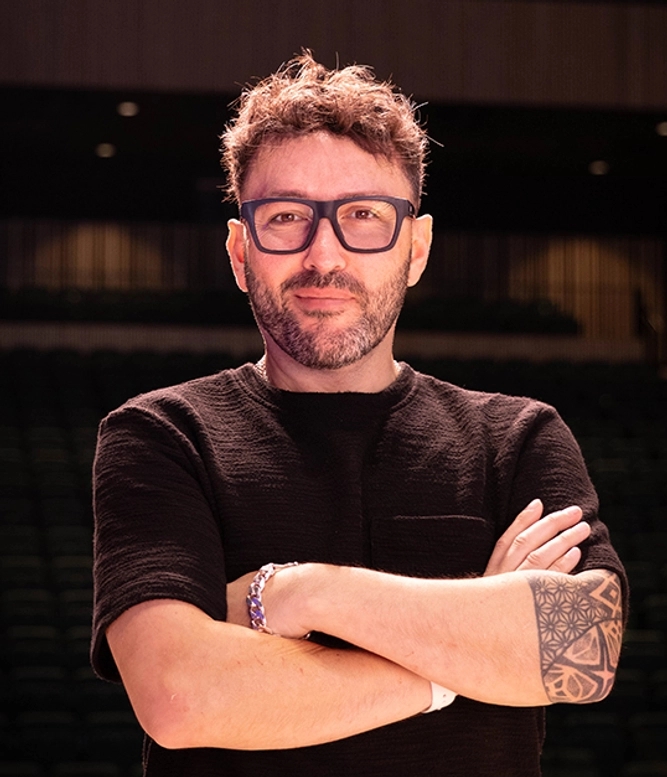opioid dependence
Richard's story

“I instantly knew I was in trouble. It was my first time trying an opioid.”
Renowned UK actor and director Richard Mylan has lived through early mental health struggles and addiction. Today, he has reconnected with the ambition that first drew him to the stage.
Reconnecting with ones ambition
Richard faced debilitating health issues since childhood. “I remember being depressed from a very young age, and then anxiety through my teenage years”, he shares. At the age of 13-14, he started smoking weed. “That did something to me, that helped”, he recalls. Alcohol entered his life early, followed by speed and then cocaine.
As he entered the professional world, his drug use escalated. “I was on regular money. I was very fit and healthy otherwise, but started taking a lot of cocaine, because I could afford it”, he says. Partying became routine.
“We kind of lived in the night and slept through the day. I sort of slipped into it. I remember thinking, ‘get through the week so I can take coke on the weekend,’ and then the weekend started to begin earlier and end later.”
During this time, Richard was a lead actor in the musical Starlight Express. “Because I was doing the show and it was so hard and I was sweating every night, I was literally kind of detoxing every night. It was weird.” One night, he tried smoking heroin, a turning point.
“When I exhaled, I instantly knew I was in trouble. It was my first time trying an opioid. It opened a door – it was a true relief and comfort. I was 21, had lived all my life with bad mental health, and it was the first time where I just felt better.”
That moment marked the beginning of a chaotic period. His usage escalated, detoxing became harder, and the cycle deepened. Still, he managed to function professionally. “I kind of managed my use around my job, but then of course the lines eventually got blurred and the discipline eroded.”
While filming in Scotland, Richard met his now wife. After a period of sobriety, he relapsed badly upon returning to London. “We were engaged, and I knew I couldn't marry her unless I'd got a grip on it. She was the first person in my life that was like, ‘I will be with you.’” Her support motivated him to seek help and commit to recovery.
Recovery was not easy.
“Stigma is a huge issue because it stopped me from getting help for years”, he says.
“The more people that don't fit the narrative talking about it, the better. I think that's where you can generate more positive change.”
Today, Richard is living his best life. He has reconnected with his ambition and co-leads the Grand Ambition Theatre in Swansea, producing work that amplifies marginalized voices. “Every day I'm thankful. I've got a wonderful family, I love my job, I get to travel, I get to experience things – I am literally living. I have plugged back into my ambition. The future looks really good.”
See Richard's story
Symptoms
In addition to cravings, withdrawals and drug seeking behavior, physical symptoms of opioid dependence may include changes in sleep habits, weight loss and decreased libido.
Diagnosis
An opioid dependence diagnosis may be made by a doctor following a formal assessment based on the patient’s history and pattern of opioid use, such as use of heroin, other illicit opioids or prescription opioids.
Management
Treatment and management of opioid dependence need to be individualized and may consist of a combination of different pharmacological and psychological interventions.
Explore more
Learn more about opioid dependence.